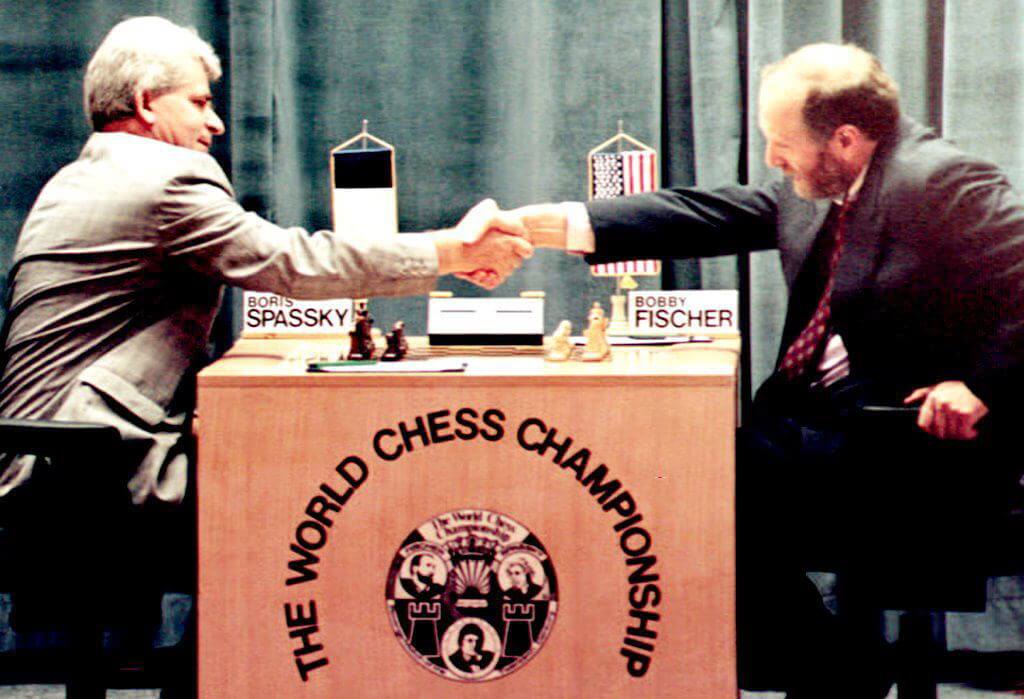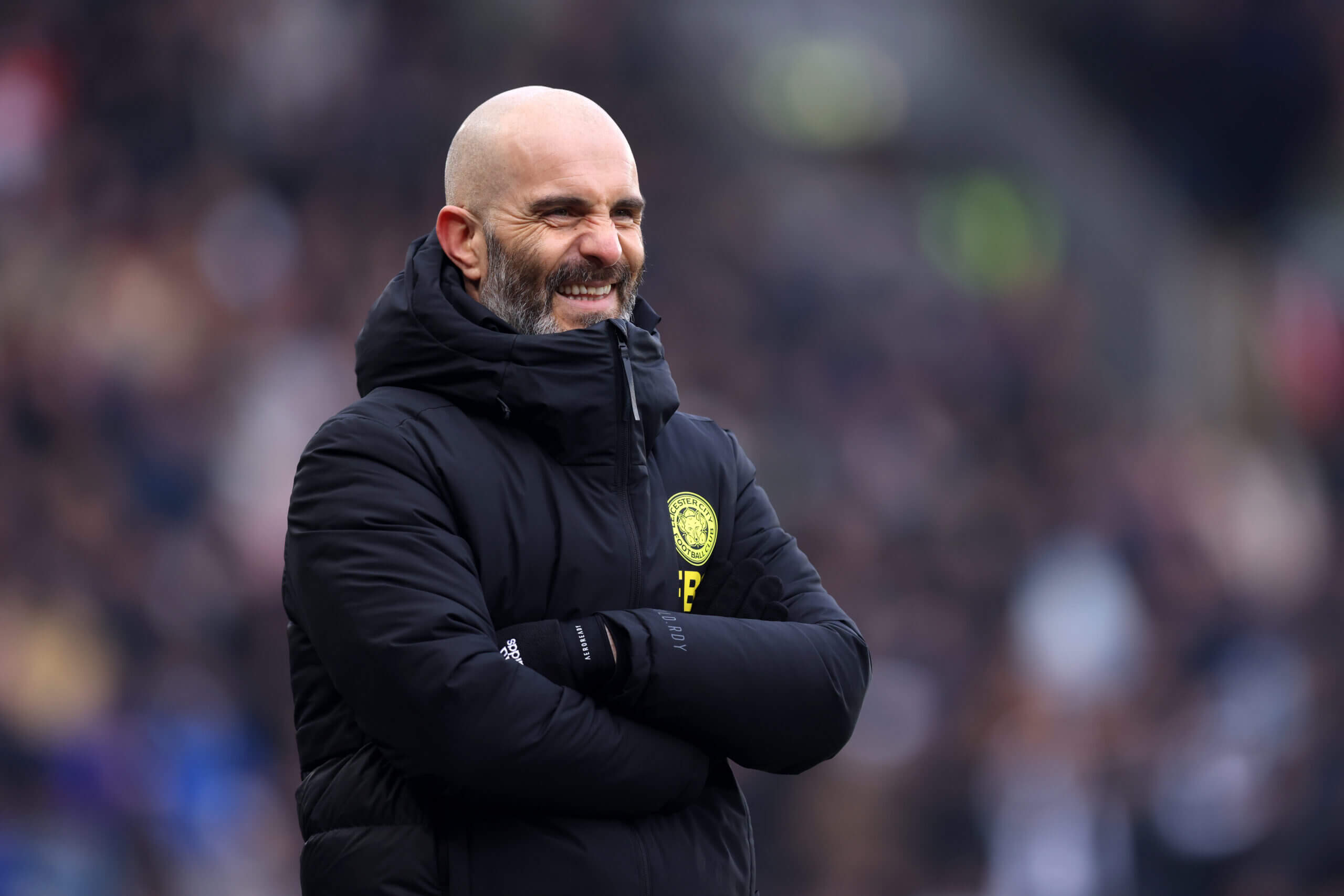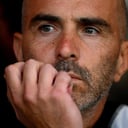Pawn Sacrifice was released in theaters ten years ago. Phonetically, it sounds more Soho than Chelsea.
But a blue film was not the case. It wasn’t a box office success either. The film, like Chelsea, significantly underperformed its estimated budget. Tobey Maguire and Liev Schreiber were in the lead roles and it still failed. But Enzo Maresca appreciated the revival of Bobby Fischer and Boris Spassky’s “Match of the Century” for the meeting of minds as much as the Cold War intrigue that surrounded a chess match in Reykjavik in 1972.
Towards the end of his playing career, Maresca began studying chess. He found a teacher in Palermo and over time had to learn the finer details of the Sicilian defense and the Fegatello, the deliciously named “Fried Liver Attack”.
It goes without saying that Chelsea managers became minced liver very quickly in the Todd Boehly-Clearlake Capital era. Maresca should be his sixth in two years if you count a desperate and short-lived interim like Bruno Saltor, a sequence of events reminiscent of the Italian term for checkmate: Scacco Matto. “Mato” means crazy, crazy. But we are moving away.
Maresca believed that learning the basics of chess would prepare him for management. Anyone who walks through the library of Coverciano, the Italian Football Federation’s coaching school on the outskirts of Florence, which is to UEFA professional licenses what Harvard Business School is to MBAs, can collect their thesis and discover how the hypermodern Nimzo-Indian defense used by all world chess champions since José Raul “The human chess machine” Capablanca is linked to Pep Guardiola’s Manchester City teams.
“A coach can only benefit from acquiring the mind of a good chess player,” Maresca argued. “The proof is the development of a certain number of mental abilities” excellent for “the prefrontal cortex”.

Boris Spassky shakes hands with Bobby Fischer during their first chess match (AFP via Getty Images)
He described them as “learning the dexterity to design tactics and strategies, improving creativity (important for the surprise factor)”, not to mention how the game “facilitates concentration”. The 44-year-old also claimed: “Chess teaches you to control the initial excitement when you see something good and trains you to think objectively when you see yourself in danger. »
Having undoubtedly paid Garry Kasparov-like attention to the way Chelsea have been run recently, Maresca somehow deduced that a potentially reputation-breaking move away from Leicester could worth it, whatever the experiences of Thomas Tuchel, Graham Potter and Mauricio Pochettino. We can only infer that he’s thinking about playing chess, the kind that beats Deep Blue and AI models like AlphaZero, while these guys were playing checkers.
As early discussions of Maresca’s judgment (or lack thereof) in taking on the job come to an end, the parallels he draws with chess are, in all seriousness, well observed.
“The chessboard is like a football field that can be divided into three channels: one central and two external,” he emphasized. “In football as in chess, an inside game can be more interesting because it is the quickest and most direct towards the goal or the king.”
Control of midfield is fundamental, as Guardiola emphasized to Maresca during his time with his team, either directly through classic midfielders like Xavi, Sergio Busquets and Andres Iniesta, or indirectly with full-backs. inverted a la Philipp Lahm or Rico Lewis acting like knights in chess. Build from the middle and the terrain opens up like the plateau, the angles of attack become multiple.
In football terms, the Italian Maresca is influenced by the Spanish juego de posicion. He quotes Paul Morphy, the Johan Cruyff to Fischer’s Guardiola, on the “ability to see combinations clearly” and that “positional play is above all the ability to arrange pieces in the most effective way.”
Then there is the element of surprise of failures, who in footballing terms could once again be seen as being on the verge of accepting the job of a promising Chelsea manager. Instead, Maresca sees it as small adjustments from game to game or within a game that can force an opponent to exploit their weaknesses and lose confidence and time.

“During a World Chess Championship game in 1991, Viktor Korchnoi took an hour and 20 minutes to execute his 13th move in response to an unexpected variation by his rival Anatoly Karpov,” Maresca explained. “Karpov’s move was not a checkmate, but the time advantage he gained by surprising his rival was definitely decisive. Korchnoi needed to reorganize and revise his strategy and tactics.”
So many Soviets feature in Maresca’s thesis that one imagines Roman Abramovich and Marina Granovskaia, former Chelsea owner and general manager respectively, would have been just as impressed as Boehly and Behdad Eghbali.
He could become the seventh Italian to step into the Stamford Bridge dugout. Two of them won the championship, one the Champions League, another the Europa League. All of them, perhaps with the exception of another West Brom alumnus, Roberto Di Matteo, were more experienced than Maresca and operated within a club with a different owner who spent big but more rationally and efficiently .
Maresca is expected to arrive after winning the championship with Leicester after threatening the 100-point barrier. He even managed to tie a 104-year-old record for the most second division wins (32) in a single season. Some call it Marescaball. His supervisor at Coverciano would probably define him as a pawn of Maresca.
At first glance, he appears to be part of the new wave of Italian coaches, which took Francesco Farioli to Ajax and led Juventus to settle on Thiago Motta. He was at the table for that famous meal in Manchester with Guardiola, Roberto De Zerbi, Daniele De Rossi and Aleksandar Kolarov – not as Pep’s guest but as one of his assistants. The halo effect that results from collaboration with the Catalans can dazzle employers. Mikel Arteta’s success at Arsenal after leaving Guardiola’s side led to Parma offering Maresca a job while he was coach of City’s elite development squad.

Maresca has had a difficult time in charge of Parma (George Wood/Getty Images)
It did not work.
Maresca inherited a team disoriented by the enthusiasm of the new American owners who spent lavishly (80 million euros!) on unknown young people from all over the world (notably from Argentina and Romania) and, unable to put pointed out what was wrong, fired a few. managers from their first season. The flow was so great that even players of Joshua Zirkzee’s potential failed to shine and Parma fell surprisingly. Maresca was asked to pick up the pieces in Serie B and, more specifically, to turn a few dozen individuals into a team. Sounds relatively familiar, doesn’t it?
Despite having the highest wage bill in the second division, Maresca was dismissed within months. He left Parma with 17 points from 13 games, just outside the relegation place to avoid Serie C.
Upon reflection, Maresca still calls it a “positive experience.” His reluctance was a lack of patience (“They gave me a three-year contract, and when you do a multi-year contract, it’s because there’s a project idea behind it) and unrealistic expectations (“No one never told me that first “We should have gone to Serie A every year, especially since around fifteen new players are arriving this summer”).
Yet local media criticized him for using players like Simon Sohm out of position and, after complaining about the disruption of too much transfer activity, he still had the nerve to insist: “Parma could have participated in the play-offs with the three players we identified for the January transfer window.

The scarring he suffered at Ennio Tardini made Maresca think twice about taking the Leicester job last summer. “I was a little scared,” he told Gazzetta dello Sport, “because it looked like Parma: a big club had been relegated and there was huge pressure to bounce back immediately.”
But Leicester set a record pace and finished the first half of the season with 58 points, a testament to Maresca’s impact but also the type of spending that led the Premier League to refer the club to an independent commission for a so-called PSR. violation and for failing to submit their audited financial accounts to the league for the 2022-23 season, while they were still in the top flight.
Automatic promotion was not easy. After a 3-1 win over Swansea in January, Maresca was frustrated by the King Power’s exasperation with the sleepy side of his tiki-taka style. “Probably when you win, win, win at home and you keep winning, people think it’s easy. But it’s not easy. I come to this club to play with this idea. As soon as there is any doubt about the idea, the next day I will leave. It’s so clear. No doubt.”
He didn’t like the failure of Stefano Sensi’s loan deal from Inter Milan after Chelsea recalled Cesare Casadei and Wilfred Ndidi was injured. Leicester’s second half of the season yielded 39 points, enough to cross the line in first place, but a decline that looked like it could deepen following defeats to Middlesbrough, Leeds and Queens Park Rangers in the spring.
Unlike Ipswich Town, who punched well above their weight to return to the Premier League for the first time in 22 years, Leicester lived up to expectations. After all, having Jamie Vardy with 18 league goals felt like a cheat code, even with him now firmly in the twilight of his career. Chelsea, meanwhile, obviously share Maresca’s view that promotion was not as easy as it seemed. That Chelsea and the former midfielder have agreed, frankly, remains a surprise.
To return to chess terminology, neither found themselves in Zugzwang: a situation in which any movement can only weaken one’s position and carries the risk of checkmate – but not moving does not is not an option. Chelsea, for example, did not need to sack Pochettino. Maresca didn’t have to leave Leicester.
Having lost the benefit of the doubt, it is only fair to question these great masters.

(Top photo: David Rogers/Getty Images)